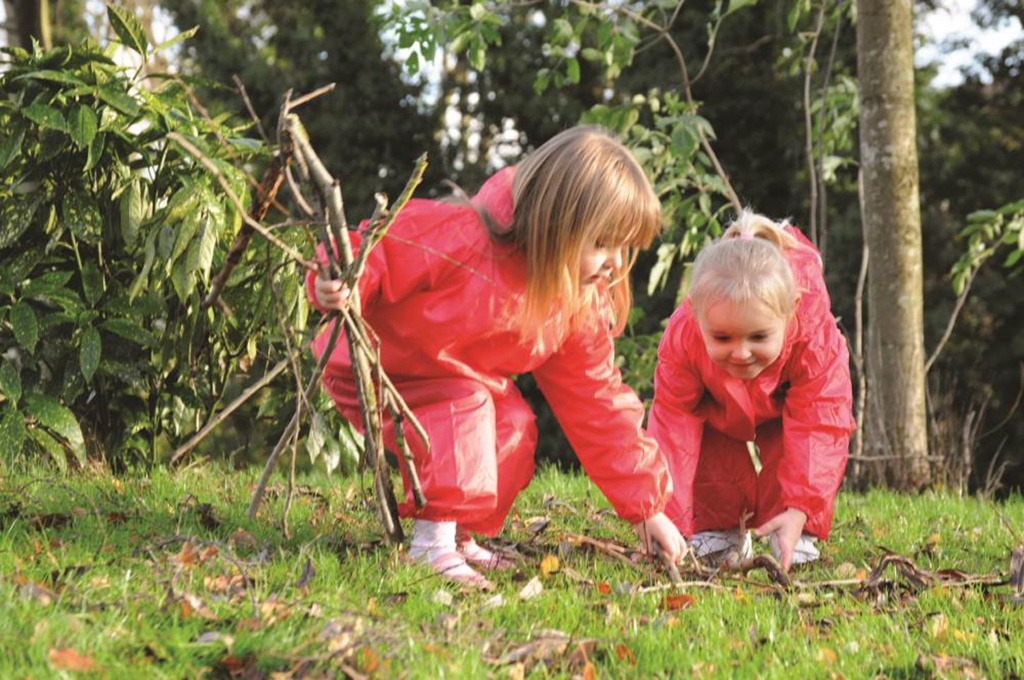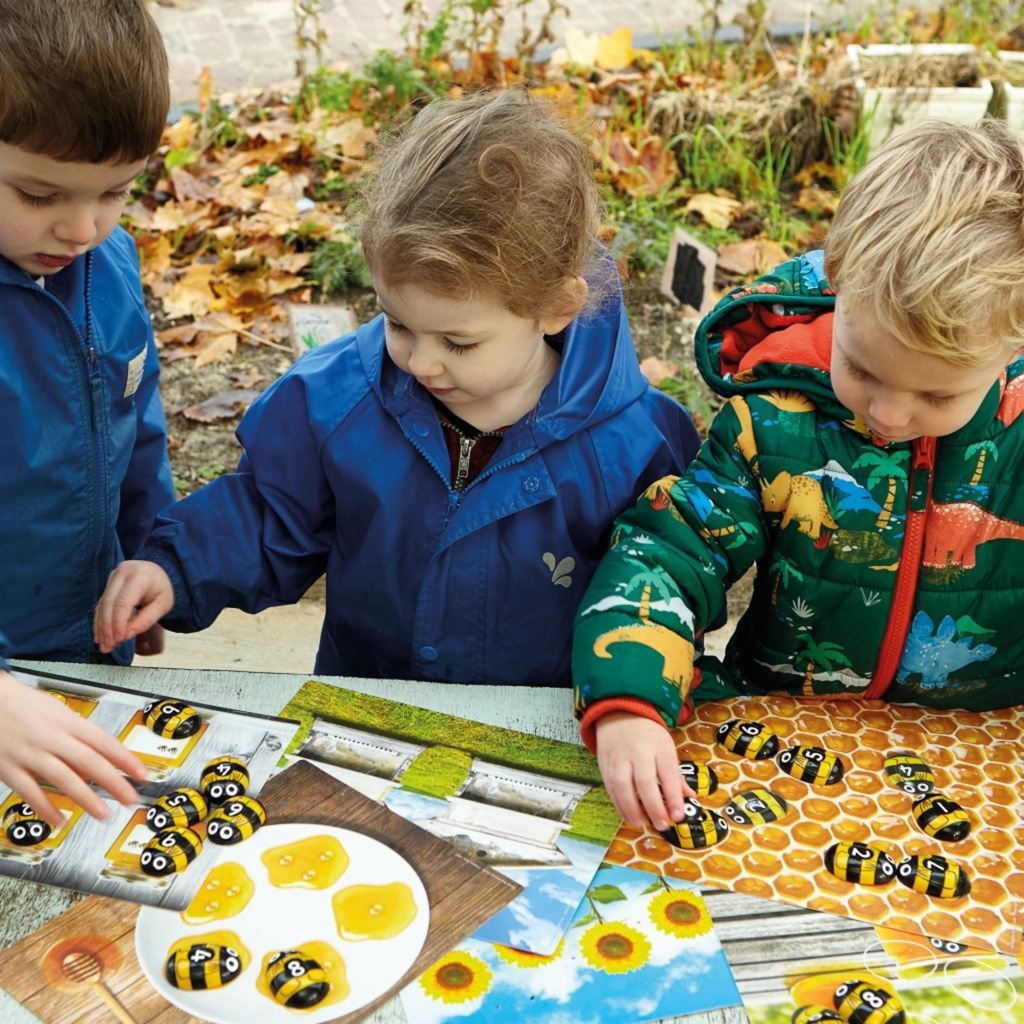
CHILD FILE 1:
Research shows that focusing on mathematics, particularly in the early years, has major benefits throughout a child’s life, helping them not only in their later education but also all the way through life. The Curriculum Guidance states that effective teaching within this area of learning:
“requires practitioners who help children to see themselves as mathematicians and develop positive attitudes and dispositions towards their learning. Children have a natural interest in numbers, measuring and shapes, aroused by interaction with their environment and with other people.” (Curriculum Guidance for the Foundation Stage, p. 71).
It is evident that children use mathematics and numeracy from a very young age – they have a need to learn about mathematics for them to be able to make sense of their world. As you read through the following observations in three early years’ settings (one of which was a nursery and infants school), consider how you help children to develop as mathematicians and how you could do it better.
Key learning
To give all children the best opportunities for effective mathematical development, we should give attention to:
- Creating a variety of different activities, some of which focus on mathematical development and some of which draw out the mathematical learning in other activities.
- Practical activities underpinned by children’s developing communication skills.
- Activities that are imaginative and enjoyable, both indoors and outside.
- Giving children sufficient time, space and encouragement to use ‘new’ words and mathematical ideas, concepts and language during child-initiated activities in their own play.

As part of the Achieving Early transition project, I was involved with observations and interviews in three early years’ settings, including one infant and nursery school. The findings below show some the main outcomes of the observations and offer some ideas for how to increase the visibility and effectiveness of maths learning at this important stage.
General observations across the settings in the observations and interviews
- All staff knew about maths concepts, knowing what to look for and how to recognise them. They were also keen to find out about aspects they were unclear on.
- Two newer staff members said they felt less confident at being able to identify and provide resources and materials to develop maths concepts.
- All staff recognised that opportunities for mathematics development should be everywhere in early years settings.
- Staff provide many and varied opportunities for children to play with maths resources.
- It is important to expose children to as many words as possible and say the same words lots of times. A simple strategy is to answer a child with a sentence that uses the opposite word. For example, if they say ‘big’, reply with a statement that uses the word ‘small’.
- Number and 2D shapes were clearly apparent.
- There was scope for teachers to include other elements, such as time, money and capacity.
- Real-life problems can be incorporated more often, for example: ‘How many spoons do we need for everyone in this group to have one?’
- Teachers were good at modelling mathematical vocabulary during the daily routines and throughout practitioner-led activities.
- There is more opportunity for asking questions, challenging responses and getting children to think. It is important to arouse children’s natural curiosity and tempt them to try new experiences. You can do this perhaps by asking questions such as “What would happen if…?” Allowing children time and space to solve problems is key to developing their mathematical thinking and creating real-world mathematicians.
Resources and approaches across the settings
Some ideas from teachers in the observed settings could be easily implemented in most classrooms:
- Having containers with screw lids and Velcro to stick labels (picture) on the containers. This enables contents to quickly be changed to a theme, and the screw lids help students develop hand strength.
- Zip wallets reinforce the same concept as above, but they use a zip, which links to learning to fasten a coat.
- Setting up a designated area outdoors where children can explore collections of objects. For example, students can be asked which area or zone contained the most items? This can be theme-linked or simply naturally occurring.
- Creating laminated pictures of the shaped objects and features that are in your outdoor space and encouraging children to search for them.
- Having a number (or shape) hunt. Prepare laminated photographs or a scrapbook of features in the park or the street that can be ‘hunted’ for and counted, for example, a door, gates, 3 fence posts, 4 trees. Hunt for examples of a specific number outdoor features, such as drainpipes, windows or manhole covers. Give children a way of recording their discoveries, for example using cameras, clipboards and pencils, or use recordable clipboard/microphone/postcard.
- Using stories, songs, games and imaginative play to develop and reinforce mathematical understanding.
Through the Achieving Early transition project, I have been able to refresh my practice. I have extended my own knowledge of how children learn in relation to mathematics. I now think more about how we can make our school richer in mathematical experiences, and how in my own setting, we could be doing more to provide experiences that are meaningful for the children. This is more than just putting out maths resources and allowing the children to explore – it is about the key learning provided by staff through quality interactions. This involves being observant of children and what they are interested in, providing challenges for them and building on what they already know.
The most significant learning for me in my own practice is the frequency of using mathematical language with the children. Throughout the day I hear myself saying things like ‘you are first’, ‘next’, ‘this one is thicker/thinner’, using open-ended questions and giving opportunities to the children to think more about problem solving.

Reflect on your own practice
- Consider your knowledge of maths concepts and how children learn maths. Do you know what to look for and how to recognise it in children’s learning?
- Do you plan with other teachers and practitioners for developing maths in your setting?
- Consider your setting. Do you provide rich mathematical experiences which are meaningful for the children?
- Do your mathematical experiences go beyond putting out maths resources and allowing the children to explore? Key learning happens when it is provided by staff through quality interactions.
- Do you consider children’s interests when you are developing maths rich-experiences?
- Do you provide challenges for the children and build on what they already know?
- Do you use mathematical language with the children? (e.g. ‘you are first/last’, ‘this one is thicker/thinner’, etc.)
- Do you use open-ended questions and give children time to think when problem solving?
Achieving Early was trialled as a model for transition in six early years settings in Sheffield from 2016–2018, funded by Sheffield Local Authority. Divided in two clusters of one school and two feeder settings, the project aimed to develop a successful transition model, promote parental engagement with schools and settings and ensure the early identification of children with additional needs. This resulted in a blueprint model for use across the city schools and settings.
Lorraine Mackie is an early years’ teacher in Sheffield and part of the Achieving Early transition project.